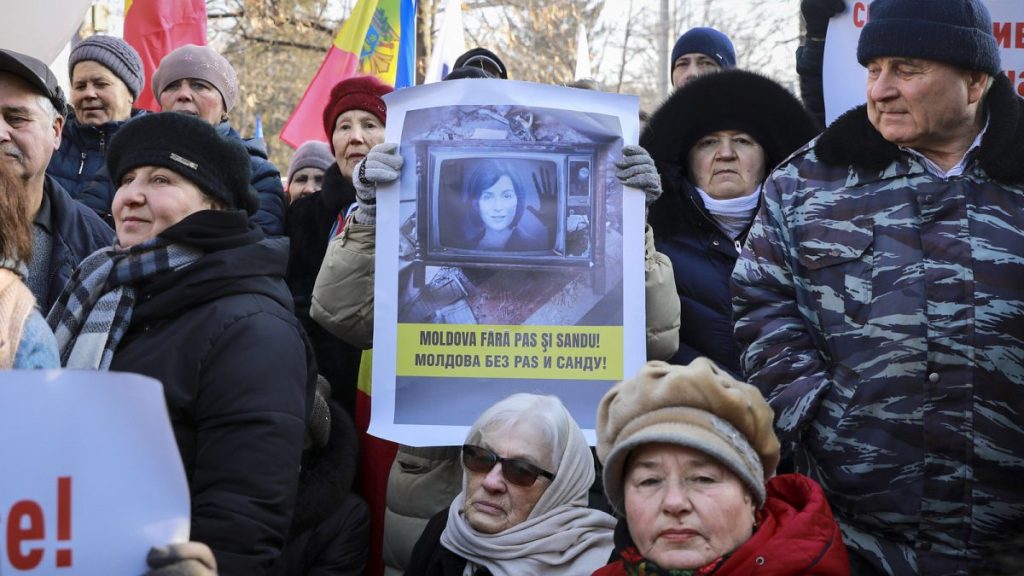European officials are concerned that disinformation campaigns and vote-buying schemes could undermine the integrity of the upcoming Moldovan elections on October 20th. The elections hold significant importance for the country’s future, as they coincide with a referendum on Moldova’s bid for EU membership. There is a divide in Moldova between those who support EU membership and those who favor closer ties with Russia, with tensions being exacerbated by Kremlin-backed hybrid warfare techniques intended to sway the vote.
Pro-European incumbent Maia Sandu is seeking re-election in the presidential race, while the referendum on EU membership could potentially solidify Moldova’s path into the EU by enshrining the decision in the country’s constitution. However, Russia’s involvement in the elections has raised concerns, with reports of significant sums of money being funneled into Moldova to influence voters. Pro-Russian figures, such as oligarch Ilan Shor, have openly offered money in exchange for votes against EU integration, adding to the complexity of the situation.
Moldova’s support for EU membership stands at around 60%, but achieving the required 33% voter turnout for the referendum to be valid remains a challenge. Russian-backed campaigns have focused on demobilizing voters to prevent the referendum from reaching the turnout threshold. While the Kremlin’s influence is a concern, the European Parliament’s Moldovan delegation believes that Moldovan authorities have the capacity to ensure free and fair elections and monitor any attempts to influence the outcome.
The conflict in Ukraine has reshaped Moldova’s political landscape, with parties distancing themselves from Russia in favor of closer ties with the EU. The EU now views Moldova’s accession as a geopolitical imperative, despite challenges such as Russia’s influence in areas like Transnistria. The EU has decided to prioritize Moldova’s integration and overlook such obstacles in an effort to protect the country and counter Russia’s destabilization efforts in the region.
The EU has pledged significant financial support to Moldova to facilitate its path towards EU membership, with a €1.8 billion financing package being proposed to assist in implementing key reforms. This investment is seen as crucial in demonstrating the benefits of EU membership to Moldovan citizens across the country. However, the EU is aware of the challenge posed by Russia’s use of hybrid warfare techniques, such as disinformation campaigns directed at sowing distrust in the EU and delegitimizing President Sandu.
As Moldova prepares for the upcoming elections, the threat of Russian interference looms large, with the Kremlin employing tactics such as targeting civil servants with false information and organizing protests to destabilize the pro-EU government. President Sandu, who has made EU integration a priority during her term, faces the challenge of navigating a contentious electoral landscape with significant opposition from pro-Russian elements. The outcome of the elections and the referendum will be crucial in determining Moldova’s future trajectory and its relationship with the EU and Russia.













